Ukrainians celebrate ‘Unity Day’ as Nato warns no signs of Russian de-escalation
President Zelensky is urging citizens to show off their patriotism amid reports of imminent conflict
Your support helps us to tell the story
From reproductive rights to climate change to Big Tech, The Independent is on the ground when the story is developing. Whether it's investigating the financials of Elon Musk's pro-Trump PAC or producing our latest documentary, 'The A Word', which shines a light on the American women fighting for reproductive rights, we know how important it is to parse out the facts from the messaging.
At such a critical moment in US history, we need reporters on the ground. Your donation allows us to keep sending journalists to speak to both sides of the story.
The Independent is trusted by Americans across the entire political spectrum. And unlike many other quality news outlets, we choose not to lock Americans out of our reporting and analysis with paywalls. We believe quality journalism should be available to everyone, paid for by those who can afford it.
Your support makes all the difference.Ukrainians raised national flags and played the nation’s anthem on Wednesday to show unity amid reports of a possible Russian invasion that Western leaders say could be imminent.
The yellow and blue banner was displayed outside schools, hospitals and many shops to mark “Unity Day”, a holiday President Volodymyr Zelensky created this week after Russia massed troops near Ukraine's borders and media reports based on a US intelligence source suggested an invasion could happen today
A 200-metre Ukrainian flag was carried around the Olympic National Sports Complex Stadium in Kiev, marking the day in grand fashion.
Russia has denied it will invade, but has warned it could take unspecified “military-technical” action if its security demands, including restrictions on the expansion of Nato eastward - including Ukraine - are not met.
Moscow recently announced it was withdrawing troops from the border following the completion of military drills, although the US, UK and Nato have warned that an attack is still possible - and could happen at any moment.
On Kiev's main Khreshchatyk boulevard, where flags decorated government offices, it was business as usual for many.
“Just a normal day, but these flags are here for a purpose, to show we fear no one. They did not scare us,” said Mykola, who operates a small coffee stand.
A loudspeaker at a local government office in the capital Kiev blared patriotic songs, while television and government Youtube channels broadcast speeches and rousing reminders of Ukraine's nationhood.
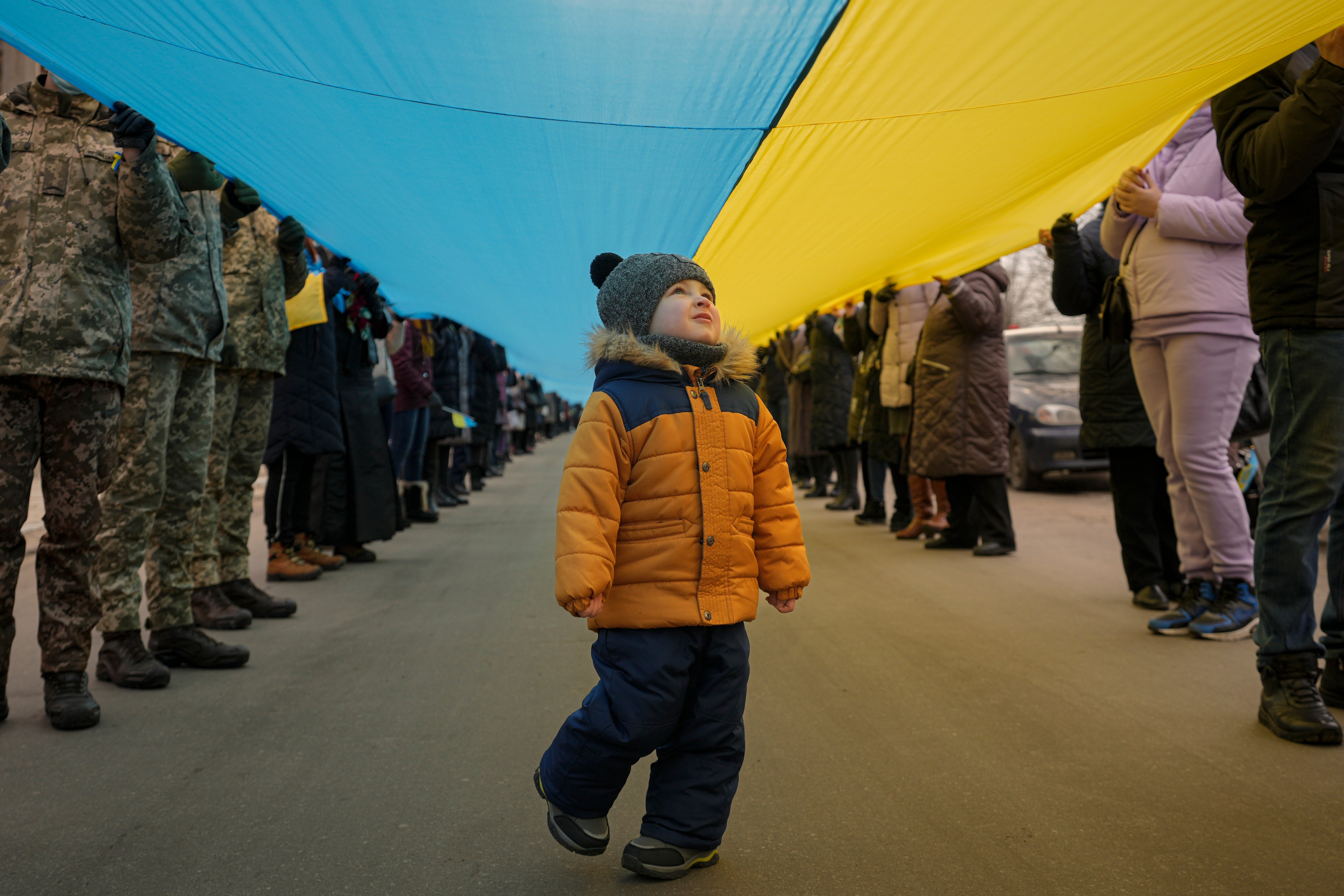
In a televised address, Mr Zelensky said Ukrainians were united around a common desire “to live in peace, happily, in a family, children with parents.”
“No one can love our home as we can. And only we, together, can protect our home,” he said.
Mr Zelensky, himself an active social media user, called on Ukrainians to post pictures and videos of the Ukrainian flag and add hashtags. On Instagram, users posted under #UnityDay.
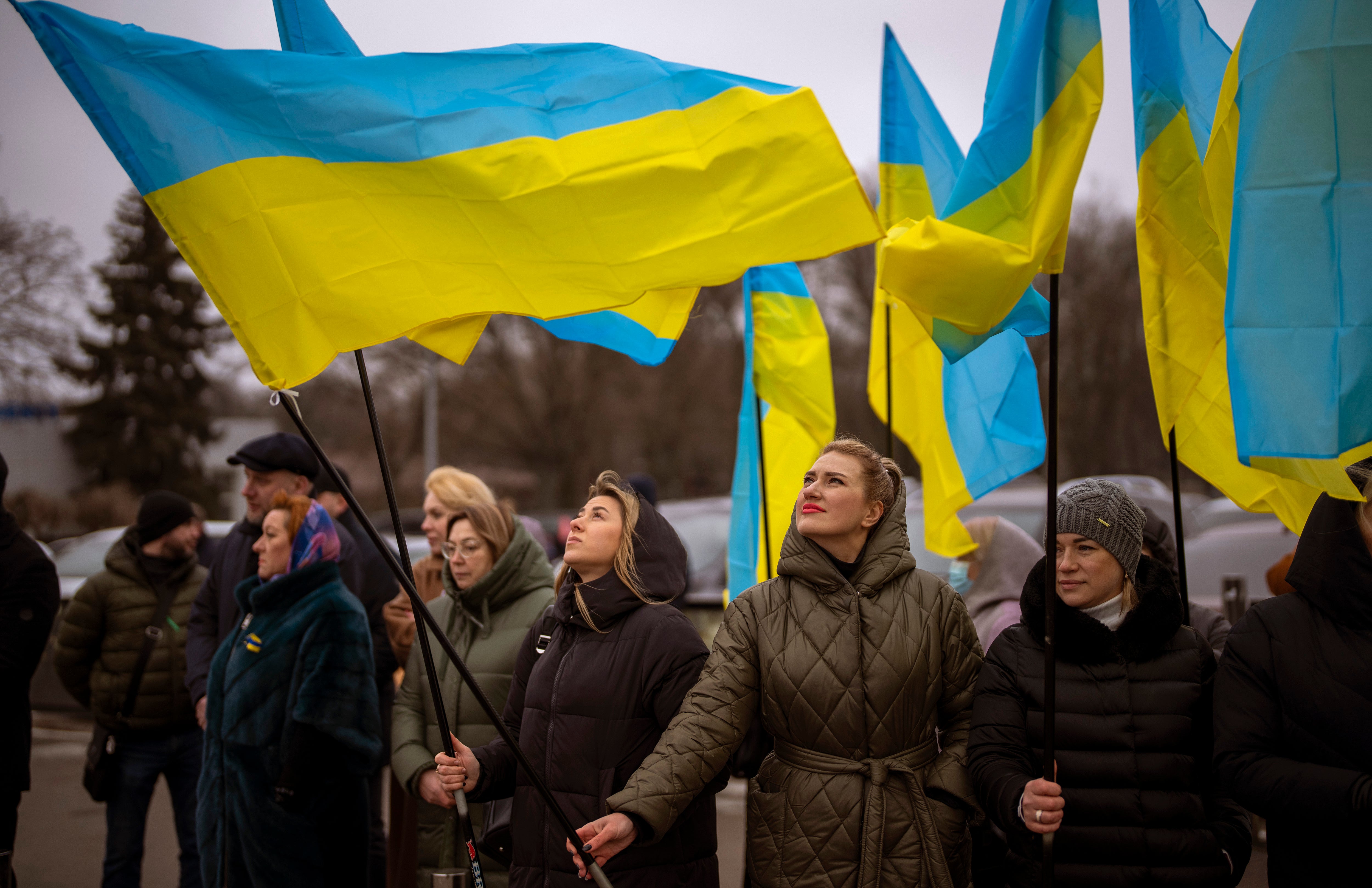
Stuart McKenzie, who is from Scotland originally but moved to Ukraine for business opportunities in 1994, said residents are “certainly trying” to keep things as normal as possible despite the fears that Russia might invade the nation.
He told BBC Breakfast: “We're not naive to the fact of how serious the situation is.
“So Ukraine's standing strong, keeping the day-to-day goings-on as normal. We're having a Unity Day today to celebrate Ukraine and to keep the country together. And that's what it did in the Orange Revolution, it brought the country together for one goal. Neighbours, enemies, friends, everybody came together to protect their country.”
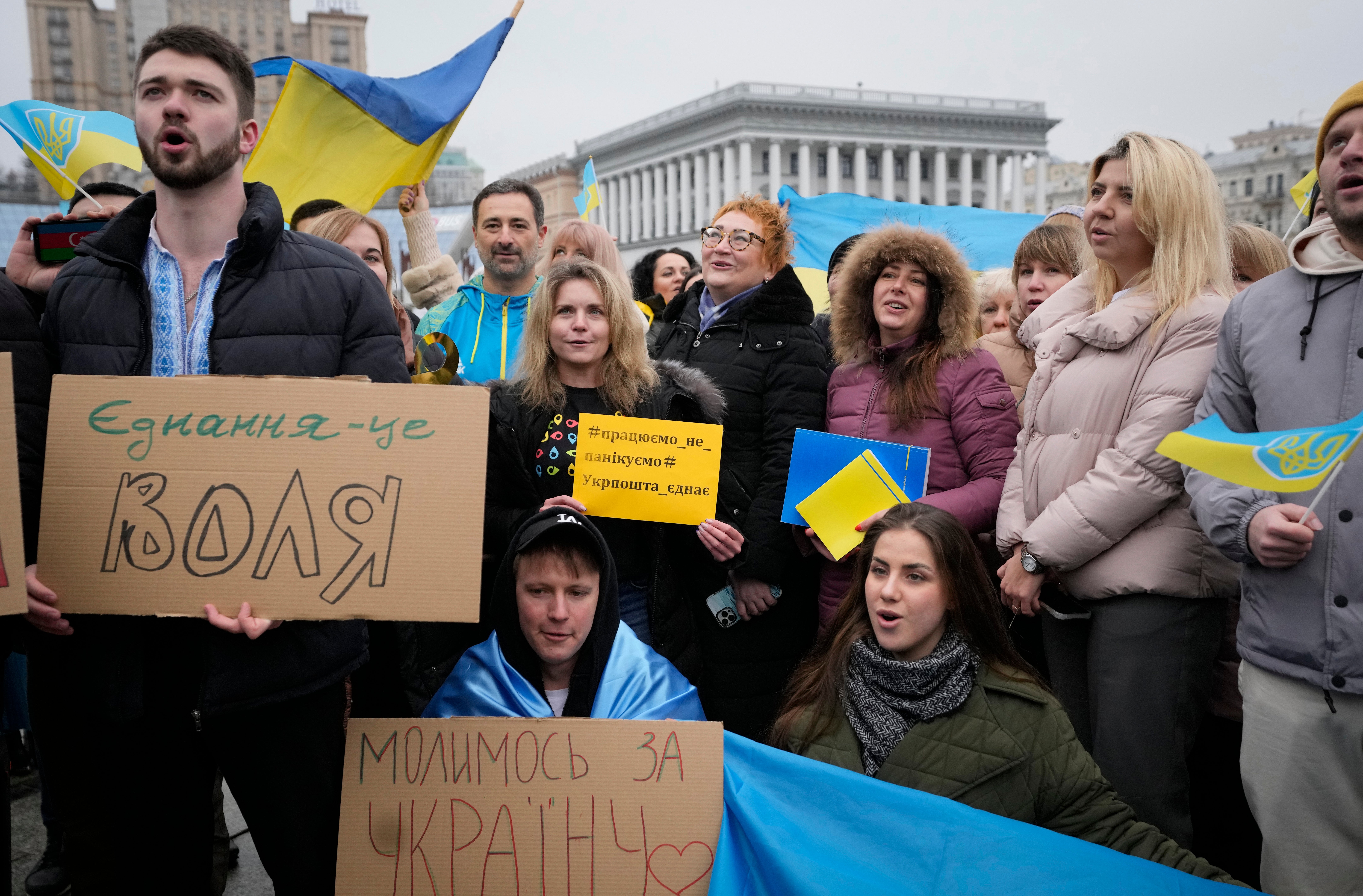
It comes as Russia rubbished claims that it was planning to invade Ukraine today, stating that “wars rarely start on Wednesday.”
When Russia’s envoy to EU, Vladimir Chizhov, was asked about the report, he told German newspaper Die Welt: “As far as Russia is concerned, I can assure you that there will be no attack this Wednesday.
“There will be no escalation in the coming week either, or in the week after that, or in the coming month.”
Conversely, Nato has maintained that there are in fact no signs of Russia de-escalating tensions.
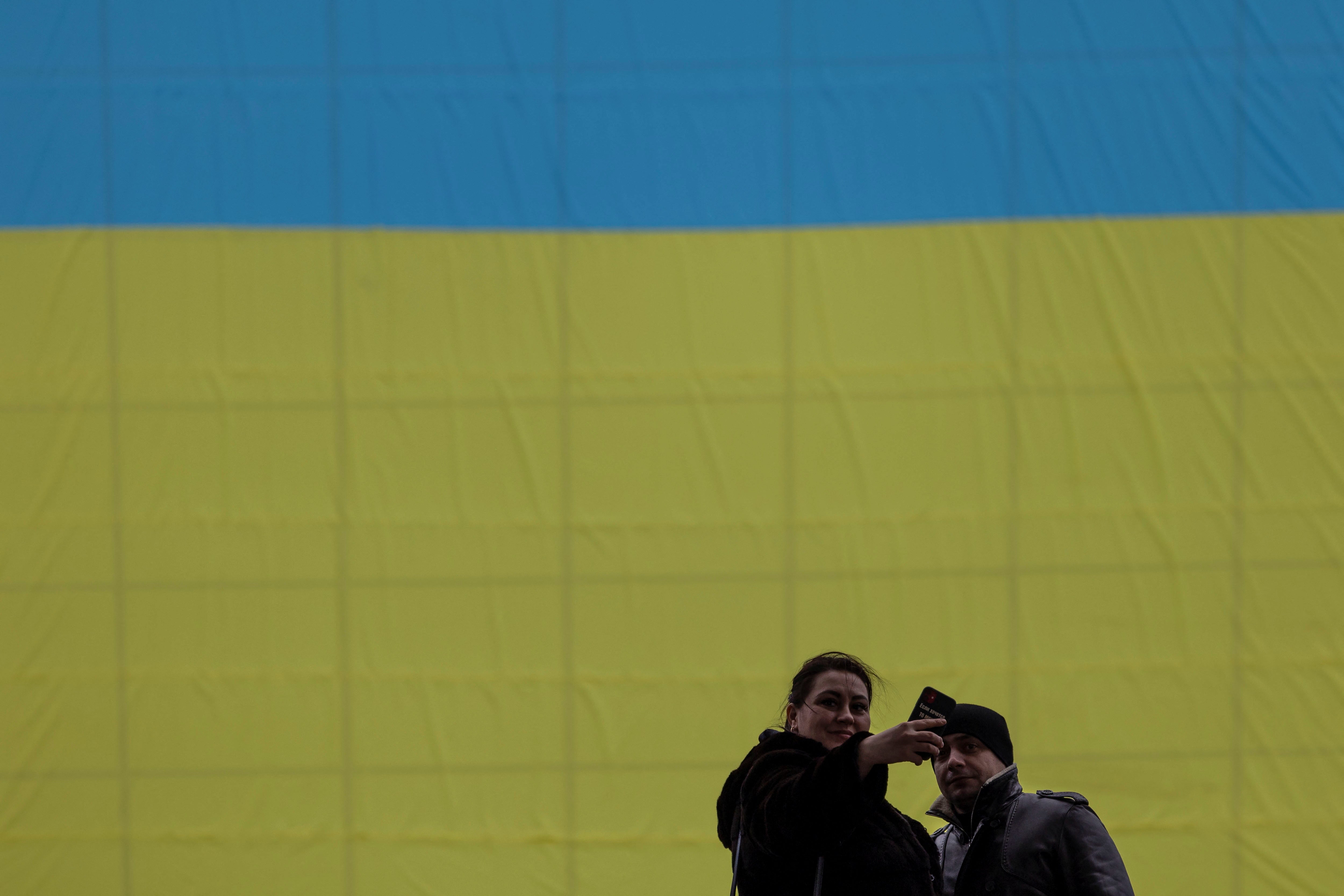
Mr Stoltenberg said on Wednesday: “So far we have not seen any de-escalation on the ground.
“On the contrary, it appears Russia continues its military build-up.”
He added: “[Russia has] always moved forces back and forth so just that we see movement of forces, of battle tanks, doesn’t confirm a real withdrawal.”
Mr Zelensky later echoed the Nato chief’s comments, saying he does not yet see any Russian troop withdrawal from positions near the Ukrainian border.
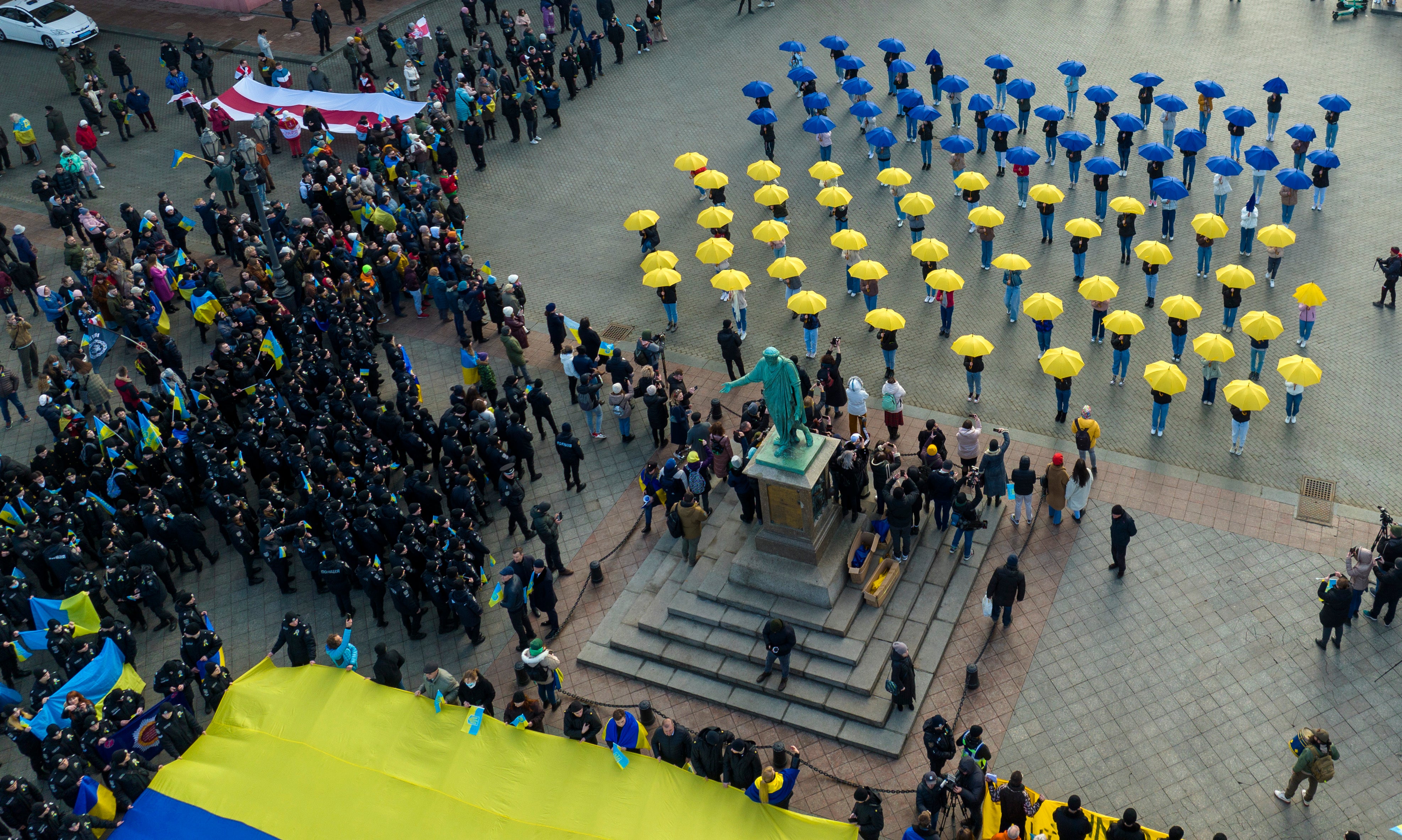
“To be honest, we react to the reality we have, and we don’t see any withdrawal yet,” he was quoted as saying by the BBC.
Earlier, UK defence secretary Ben Wallace said – referring to latest intelligence – that Russia has 60 per cent of its soldiers still on the border of Ukraine, as well as significant naval power at sea.
Additional reporting by agencies
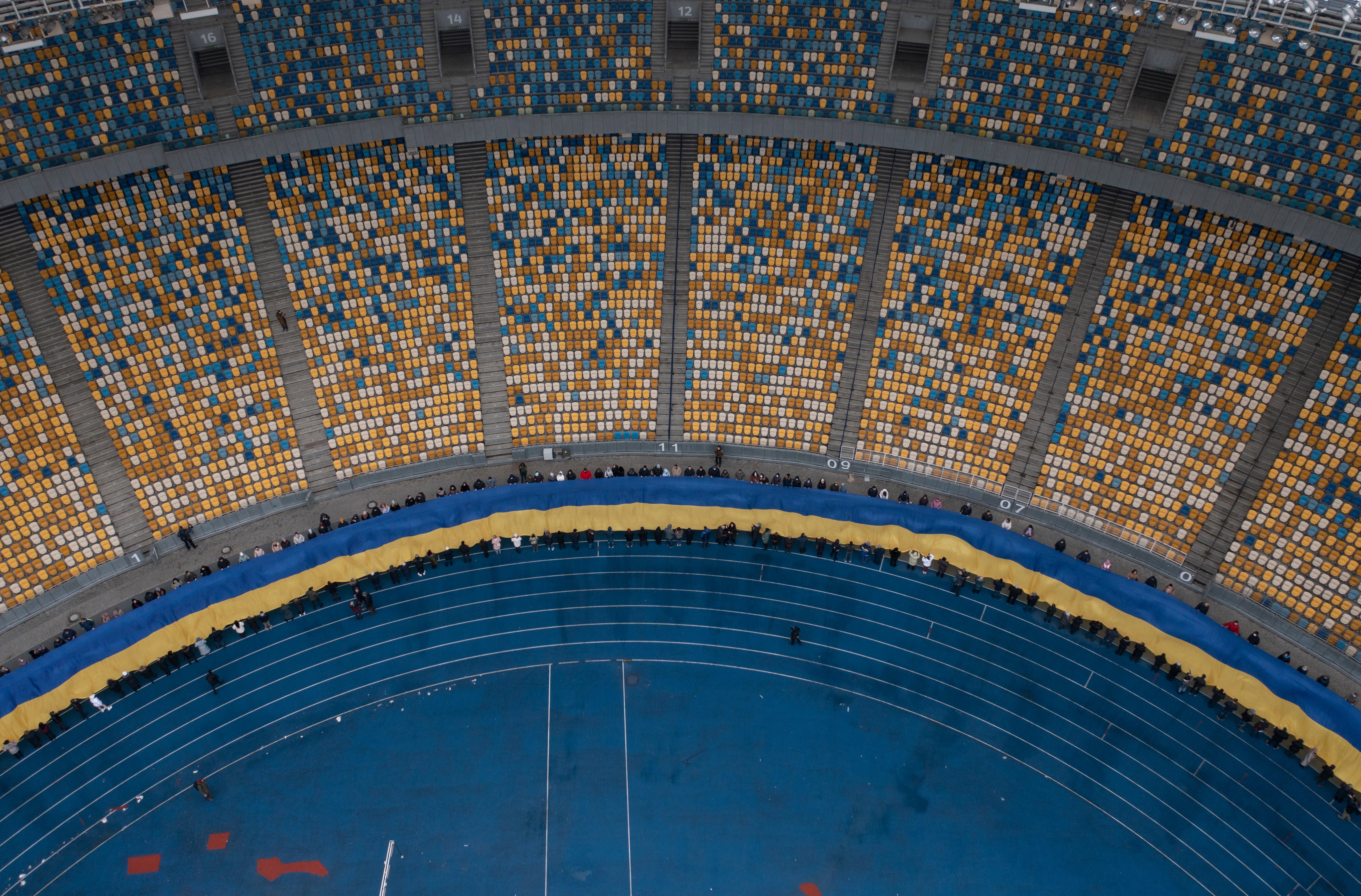




Join our commenting forum
Join thought-provoking conversations, follow other Independent readers and see their replies
Comments